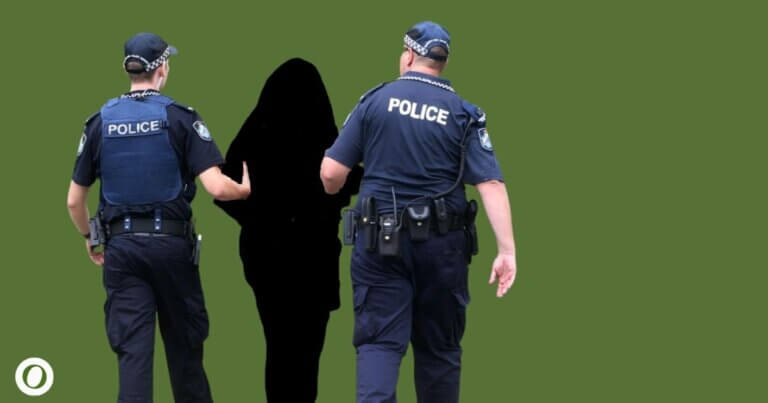Arrests | Factsheet
Criminal Procedure
Jump To
In NSW, the Law Enforcement (Powers and Responsibilities) Act 2002 (‘LEPRA’) is a piece of legislation which governs the exercise of police powers. Police generally have wide powers to carry out their duties. However these powers are balanced by safeguards which protect individual freedoms and civil liberties.
This fact sheet will help you understand what powers police have when carrying out an arrest, using force, and issuing directions.
Can Can Police Arrest Without a Warrant?
The power for police to arrest someone without a warrant is governed by section 99 of LEPRA. Police can arrest someone without a warrant if they suspect on reasonable grounds that a person is committing or has committed an offence. Police have to also satisfy themselves that the arrest is reasonably necessary for one or more of the following reasons:
- (i) to stop the person committing or repeating the offence or committing another offence,
- (ii) to stop the person fleeing from a police officer or from the location of the offence,
- (iii) to enable inquiries to be made to establish the person’s identity if it cannot be readily established or if the police officer suspects on reasonable grounds that identity information provided is false,
- (iv) to ensure that the person appears before a court in relation to the offence,
- (v) to obtain property in the possession of the person that is connected with the offence,
- (vi) to preserve evidence of the offence or prevent the fabrication of evidence,
- to prevent the harassment of, or interference with, any person who may give evidence in relation to the offence (i.e. a witness),
- to protect the safety or welfare of any person (including the person arrested),
- (ix) because of the nature and seriousness of the offence.
If one or more of the above reasons is not satisfied, police do not have the power to arrest. In this case, they should issue a Future Court Attendance Notice to the person they suspect has committed the offences.
A police officer who arrests a person without a warrant must, as soon as is reasonably practicable, take the person before an authorised officer (a court) to be dealt with according to law.

What Information Must Police Provide When They Are Arresting Someone?
Section 202 of LEPRA requires that when exercising the power of arrest, a police officer must provide the person they are arresting with:
- evidence that the police officer is a police officer (unless the police officer is in uniform),
- the name of the police officer and his or her place of duty,
- the reason for the exercise the power.
Police must provide this information as soon as it is reasonably practicable to do so.
Police must also provide this information when they are exercising other powers, such as:
- a power to stop, search or arrest a person,
- a power to stop or search a vehicle, vessel or aircraft,
- a power to enter or search premises,
- a power to seize property,
- a power to require the disclosure of the identity of a person (including a power to require the removal of a face covering for identification purposes),
- a power to give or make a direction, requirement or request that a person is required to comply with by law,
- a power to establish a crime scene at premises (not being a public place).
Use of Force by Police in an Arrest
In Australia, the Law Enforcement Powers and Responsibilities Act (LEPRA) sets out the guidelines for when and how police officers can use force in the course of their duties.
Police can use force as is reasonably necessary to make an arrest (section 231, LEPRA) or to exercise a lawful function (section 230, LEPRA).
The use of excessive force by the police is a serious matter and should only be used as a last resort. In a situation where excessive force is used, it will be reviewed and investigated to ensure that it was justified and that the officer acted within their legal authority.
How we Can Help
If you have been arrested in New South Wales, it is important to understand that you have legal rights and that a lawyer can help you navigate the criminal justice system. Our lawyers can provide you with legal advice, help you understand the charges against you, and represent you in court.
If you think police have acted unlawfully in the exercise of their duties, then it is important to speak to a lawyer.
In some instances, the unlawful actions of police may give rise to a civil claim against police for assault, battery, false imprisonment or malicious prosecution.

